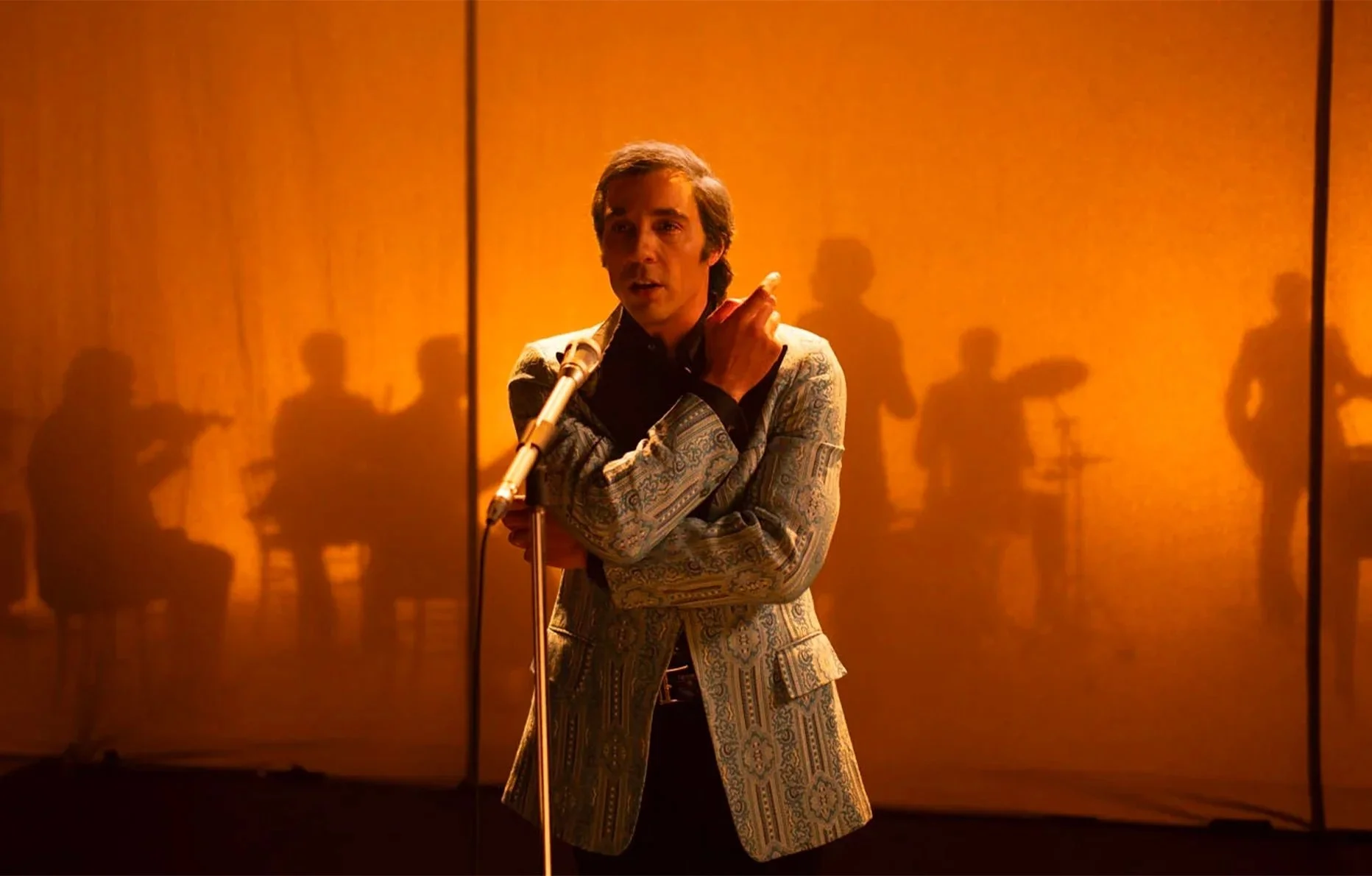Film review: Monsieur Aznavour takes a sweeping trip through the early days of chanson
Romantic locales, witty repartee, and entrancing music in engaging biopic about “France’s Frank Sinatra”
Monsieur Aznavour.
Monsieur Aznavour screens at the Alliance Française Vancouver in a presentation with Visions Ouest Productions on January 16 at 7 pm (sold out) and again on January 31 at 7 pm
IT FEELS FITTING that a movie about chanson icon Charles Aznavour would find such joie de vivre in his adventures as a young artist. The charismatic star, who rose from poverty as the son of Armenian refugees to “France’s Frank Sinatra”, always sang nostalgically about youth.
In the sweeping biopic Monsieur Aznavour, with a convincing Tahar Rahim in the title role, the early half is hugely enjoyable. That’s in large part because the rich camerawork plunks you in the thick of Paris’s buzzy early- and mid-century cabaret scene—the kind with little lamps glowing on all the tables. Still, the real fun is watching young Aznavour’s witty camaraderie with his travelling singing partner and pianist Pierre Roche (an impossibly charming Bastien Bouillon). Even during the Nazi-occupied 1940s the pair manage to find gigs, bicycling from town to town in southern France when the trains stop running. In another scene, when they naively land in New York City without proper visas and end up in a holding barracks, they look on the bright side: “Let’s see if there are any girls,” Roche says, jumping up.
A massive success in France, this alternately ultra-detailed and broadly sketched biographical drama, of course, takes a turn. But in marked contrast to music biopics like Piaf, Aznavour’s story is mostly not one of torment; instead it’s about resilience and hard work—though that work ethic does end up robbing him of some of life’s joie. Unlike Edith Piaf, he can’t really say “Je ne regrette rien”.
Speaking of Piaf, more biting repartee awaits in the film’s third chapter, when Aznavour comes under the mentorship of the songstress (a wonderfully blunt and sardonic Marie-Julie Baup). She’s drawn to him because he, like her, comes from the streets, but she’s also ready with stinging (and decidedly unsolicited) critiques of his singing. She offers him huge opportunities—at one point securing him and Roche a successful two-year stint in Montreal—but often turns him into a glorified chauffeur.
Along the way are romantic sparks and breakups, a few neglected children, and, late in the film, an uncontrollable urge to make more money, complete with ever-more-gigantic marquees, long past the point Aznavour needs or really wants to work.
It’s a largely complimentary portrait, though. Some of the most striking content surrounds the overt racism and disdain that French critics slung at Aznavour in his early career—from complaining about the size of his nose to dubbing him a “dirty foreigner”. He’s told outright, many times, that he’s not handsome enough to sing love songs.
That brings a bit of a reality check to this glossy, romanticized depiction—though, importantly, so do the words of the tunes he’s best known for. Monsieur Aznavour is careful to show how only when the singer started using “je” and “tu” in his thousand-plus songs—and began reflecting fearlessly on his own faults—did he connect on a mass scale with the world. And if the final chapter feels like an extended montage of concert clips, it may be enough to immerse yourself in the chansons and Champagne—forgetting, for a while, about the thousand dreams you dreamed. ![]()

























